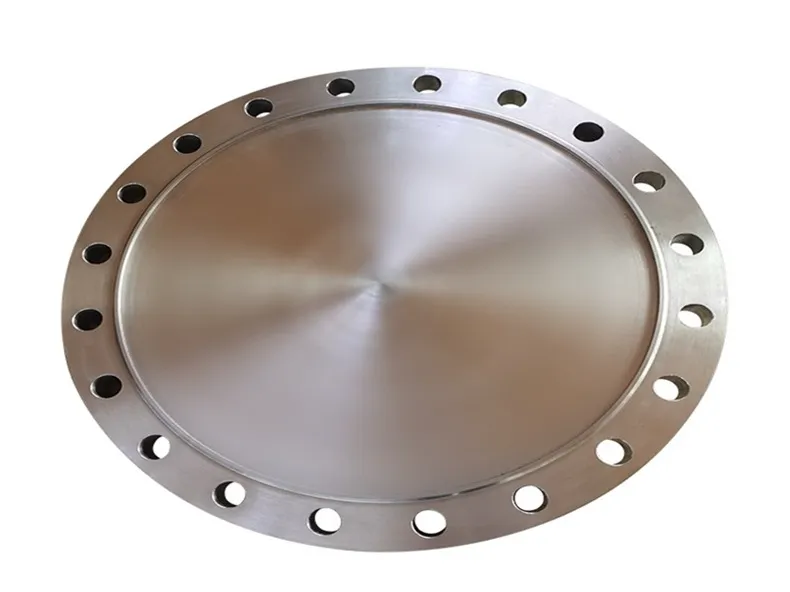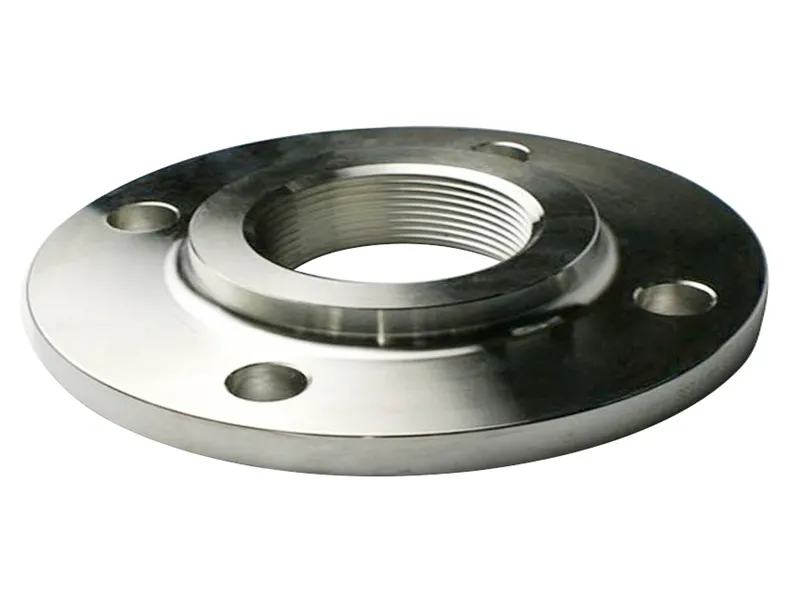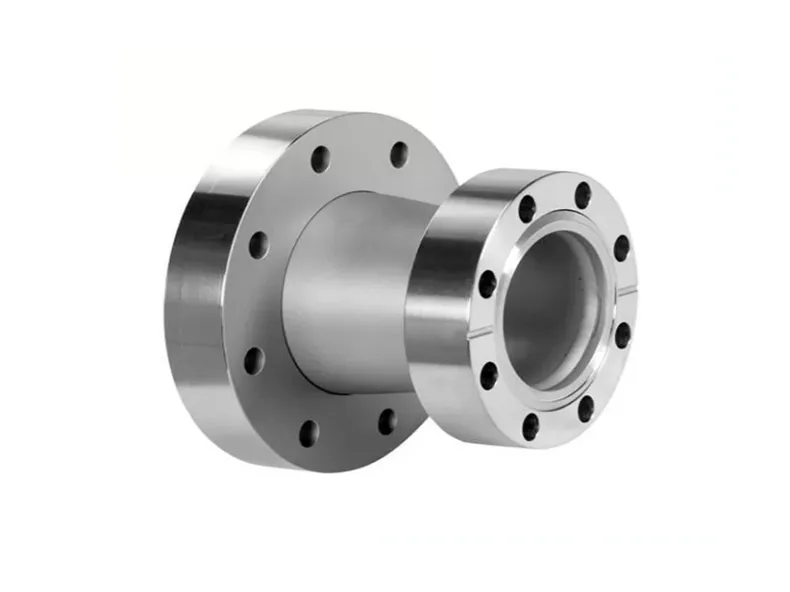The difference between alloy steel flange and stainless steel flange lies primarily in their material composition and resulting properties, which make them suited for different applications. Alloy steel flanges are crafted from a mix of metals, including chromium, molybdenum, and nickel, which enhance their strength, toughness, and resistance to high temperatures and wear. This makes alloy steel flanges particularly suitable for high-stress environments such as power generation and heavy machinery.
Conversely, the difference between alloy steel flange and stainless steel flange is that stainless steel flanges are mainly made of iron, chromium, and nickel, which provides exceptional corrosion resistance. This characteristic is crucial for applications in corrosive environments like chemical processing and water treatment. While alloy steel flanges are known for their long-lasting and capable of enduring harsh conditions, stainless steel flanges offer superior resistance to oxidation and rust, ensuring greater longevity and reliability in corrosive settings.

Material
The difference between alloy steel flange and stainless steel flange is evident in their composition. Alloy steel flanges are made from iron mixed with different alloying elements like chromium, molybdenum, and nickel, and vanadium. These additions are designed to enhance the mechanical properties and performance characteristics of the steel, including its hardness, strength, toughness, and resistance to wear and heat. The exact mix and proportion of these alloying elements define the steel’s properties and suitability for different applications.
In contrast, the difference between alloy steel flange and stainless steel flange lies in the composition, as stainless steel flanges primarily feature iron with chromium and nickel, which provide different benefits. Common grades of alloy steel flanges, such as A234 WPB, A182 F22, and A335 P11, each have unique qualities that make them perfect for various high-stress environments.
The difference between alloy steel flange and stainless steel flange is highlighted by their material composition. Stainless steel flanges are primarily made from iron, chromium, and nickel. The chromium content, usually around 10.5% or more, imparts distinctive corrosion resistance to stainless steel flanges, while the nickel content enhances their toughness and resistance to oxidation.
The difference between alloy steel flange and stainless steel flange also extends to their available grades; stainless steel flanges are available in multiple grades, including 304, 316, and 321, each tailored to meet specific needs. For instance, grade 304 is commonly used for general applications, whereas grade 316 is better suited for environments with more aggressive corrosive agents.
Typical Applications
Alloy Steel Flanges
- Oil And Gas Industry
- Power Generation
- Heavy Machinery
Alloy steel flanges are commonly utilized in the oil and gas sector for pipelines and refineries, and processing plants. The high strength and heat resistance of alloy steel flanges make them suitable for handling high-pressure and high-temperature fluids.
In power generation plants, alloy steel flanges are used in steam and gas systems where strength and heat resistance are critical. Alloy steels are often employed in high-pressure boilers and turbines.
Alloy steel flanges are used in heavy machinery and equipment that experience high stress and wear. Their long-lasting nature and abrasion resistance make them well-suited for use in mining and construction machinery.
Stainless Steel Flanges
- Chemical Processing
- Water Treatment
- Food And Beverage Industry
Stainless steel flanges are widely used in chemical processing industries due to their excellent corrosion resistance. They are well-suited for managing corrosive chemicals and are often used in reactors, pumps, and pipelines.
Stainless steel flanges are employed in water treatment plants for their resistance to rust and corrosion. They are used in various components, including valves, pumps, and filtration systems.
In the food and beverage industry, stainless steel flanges are favored for their sanitary properties and ease of cleaning. They are used in equipment such as mixers, pumps, and storage tanks where hygiene is paramount.

Cost And Availability
- Alloy Steel Flanges
- Stainless Steel Flanges
Cost: Alloy steel flanges are generally more cost-effective compared to stainless steel flanges, especially when considering high-strength applications. The cost of alloy steels can vary based on the specific alloy and its composition.
Availability: Alloy steel flanges are widely available and can be sourced from many manufacturers. The variety of alloy steel grades allows for flexibility in selecting a flange that meets specific performance requirements.
Cost: Stainless steel flanges tend to be more expensive due to the higher cost of raw materials and the complex manufacturing processes. The price of stainless steel flanges can be influenced by factors such as alloy grade and market conditions.
Availability: Stainless steel flanges are also widely available and can be sourced from numerous suppliers. The extensive use of stainless steel in various industries ensures a broad range of options for different applications.

The Difference Between Alloy Steel Flange And Stainless Steel Flange About Maintenance And Longevity
- Alloy Steel Flanges
- Stainless Steel Flanges
Maintenance: Alloy steel flanges may require additional maintenance to ensure their longevity, especially in corrosive environments. Regular inspections and protective coatings can help extend their service life.
Longevity: Alloy steel flanges are durable and can provide a long service life when used in the appropriate applications. However, their performance may be affected by exposure to corrosive substances or extreme conditions.
Maintenance: Stainless steel flanges generally require less maintenance due to their inherent corrosion resistance. They are easier to clean and maintain, making them suitable for applications with high hygiene standards.
Longevity: Stainless steel flanges offer a long service life due to their resistance to corrosion and oxidation. They are well-suited for environments where long-term durability and minimal maintenance are important.
GET IN TOUCH
Company:
Elite Piping Manufacture Co., Ltd.
Factory Address:
Office # 805, Building No. 6 Poly Metropolitan, Yongshum Town, Tongzhou District, Beijing, China.
Contact Person:
Michael
Contact Numbers:
+86 186 1829 1381
Email:
elite@elitepiping.com

